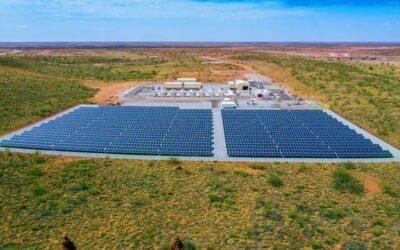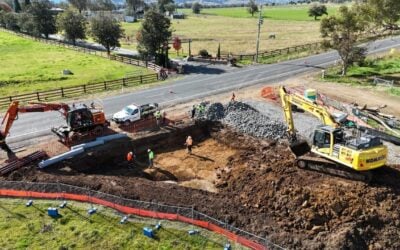The batteries, solar and LEDs will be installed at Bangkok International Airport's Sky Lane bicycle track. Image: wikimedia user: sky 269.
Aquion Energy’s non-toxic ‘saltwater’ batteries will be used to illuminate a dedicated bicycle lane at an airport in Thailand.
The batteries will be used to provide several hours of storage to light up Sky Lane, a 23.5km stretch of track at Bangkok International Airport. The track will use 800 solar-powered LED lights in combination with the batteries and will enable Sky Lane to be used at night.
Enjoy 12 months of exclusive analysis
- Regular insight and analysis of the industry’s biggest developments
- In-depth interviews with the industry’s leading figures
- Annual digital subscription to the PV Tech Power journal
- Discounts on Solar Media’s portfolio of events, in-person and virtual
Aquion, based in Pittsburgh in the US, said work is already underway and expected to be completed during December. Around 14,000 cyclists a week use the track.
There are some similarities between Aquion's undertaking and a recent project in Brazil, in which Japanese solar panel maker Kyocera installed solar and LED lights to illuminate a 73km stretch of highway, although in that instance lead acid batteries were deployed to provide around three days' electricity storage to power the lights.
Saltwater batteries
Aquion’s Aqueous Hybrid Ion batteries have drawn a fair amount of industry interest since late 2014, with their maker claiming that they can be used at 100% discharge depth for up to 20 hours. In an installation announced at the very beginning of 2015, Aquion’s batteries were to be used to help residents of a private gated community to go “97% solar” on its micro-grid.
In that instance, AHI batteries were connected to a 176kW PV array, to charge for eight hours during daylight hours and then be discharged over 16 overnight and evening hours.
Along with their long duration, another aspect of the AHI battery that has piqued curiosity is their environmental and sustainability credentials. The company’s saltwater battery is the first battery in the world to have received Cradle to Cradle certification.
This means that in terms of carbon management, the maximum use of available recycled materials and an optimisation of the amount of the product that can be recycled, a manufacturer has been certified to have met certain standards, as approved by the independent Cradle to Cradle Products Innovation Institute. Aquion’s battery gained an overall Bronze certificate.
CEO awarded MIT prize for invention
The company’s CEO, Jay Whitacre was recently awarded the Lemelson-MIT Prize for an invention which could be of great value to society. Whitacre, who is a professor at Carnegie-Mellon University, received the US$500,000 prize money at the beginning of November.
The AHI battery was hailed by the prize’s judges for its use of non-toxic materials, the long duration of storage it offered and its suitability for use in integrating variable renewable energy generation.
Aquion is now exporting its batteries internationally, with distributors in the UK and elsewhere looking to start installing them.
Aquion AHI battery. Image: Aquion Energy.






